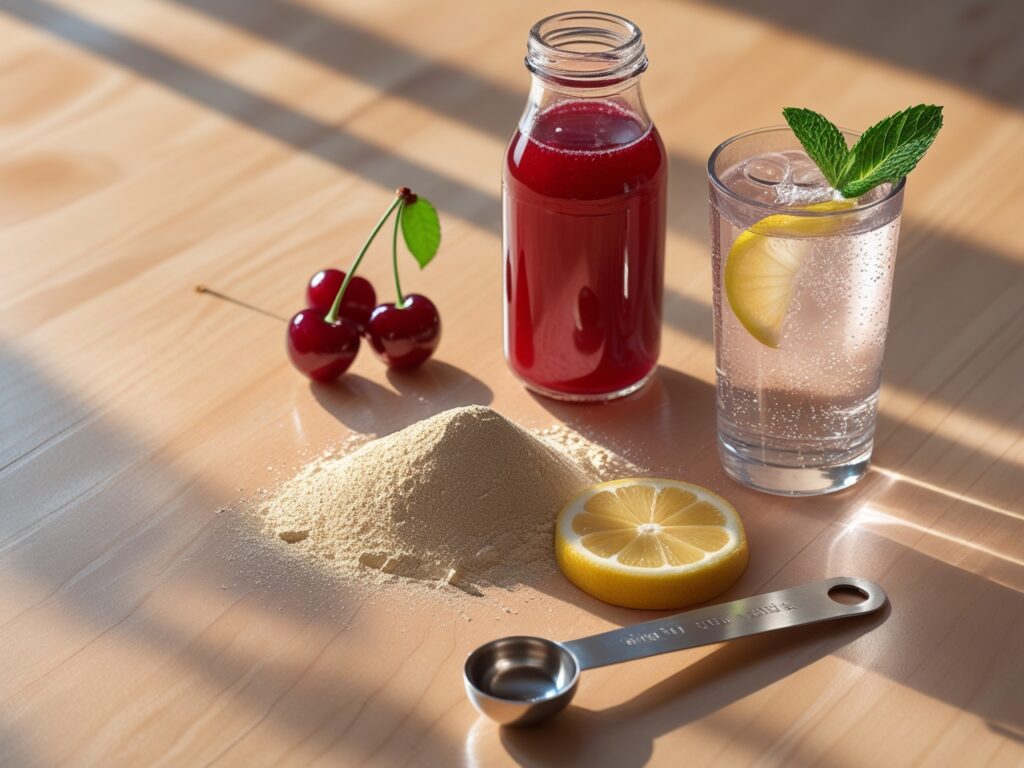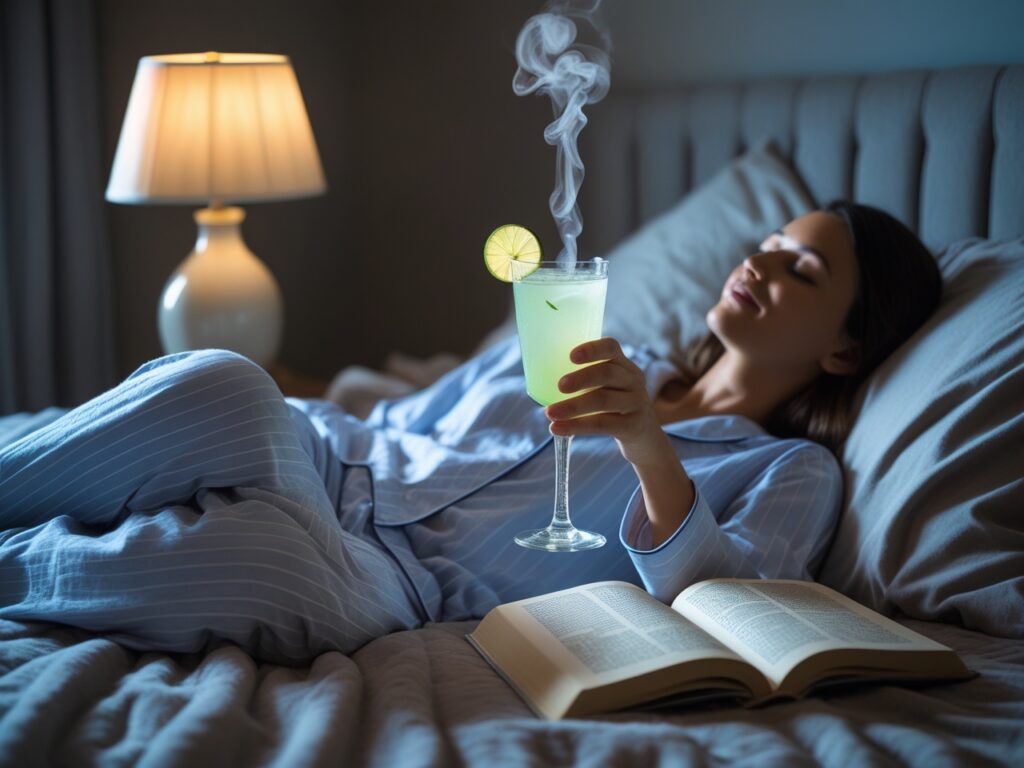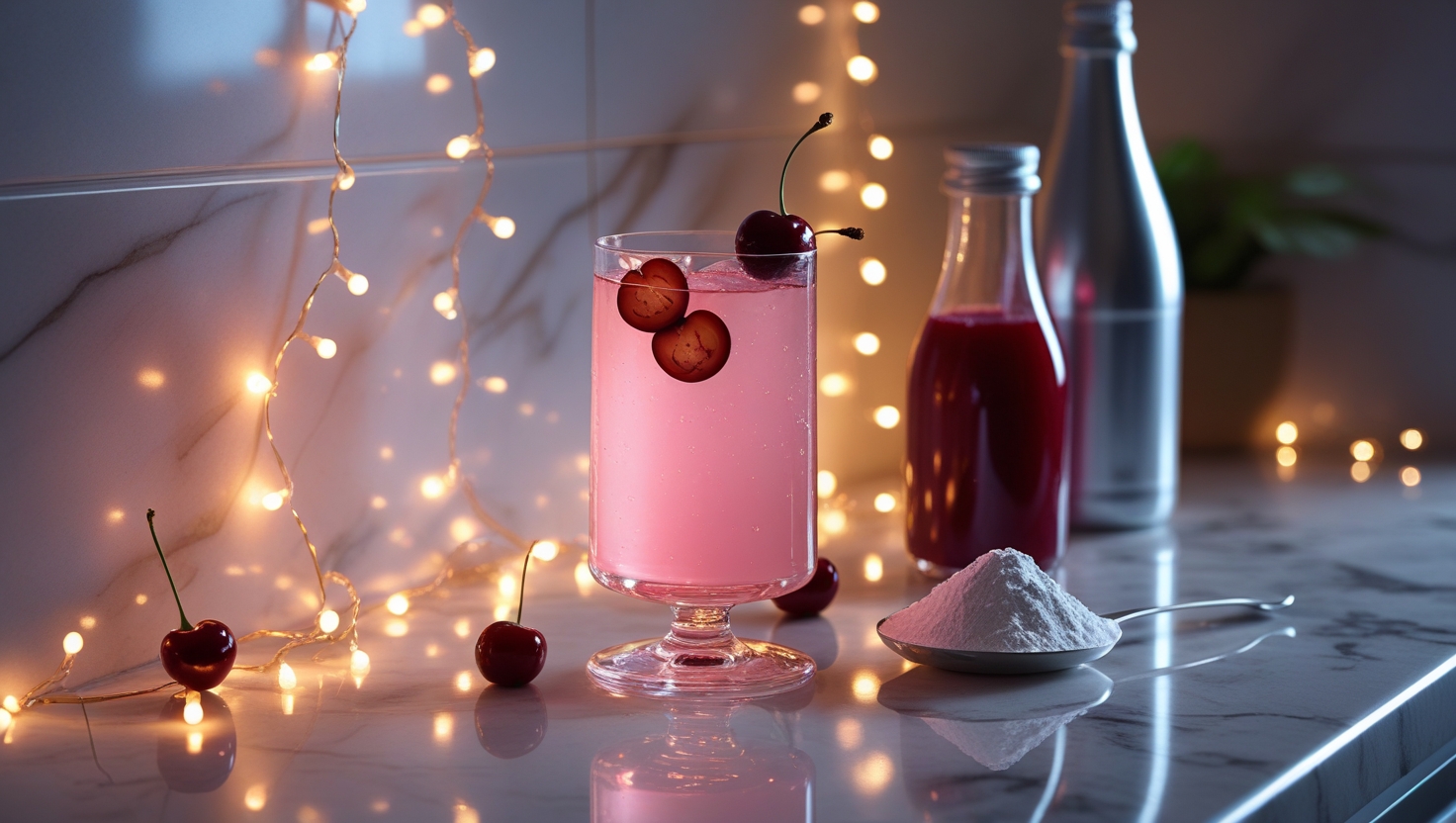The Rise of Magnesium Mocktails for Better Sleep
If you’ve scrolled through TikTok or YouTube lately, chances are you’ve stumbled across the “Sleepy Girl Mocktail.” These magnesium mocktails have gone viral, promising deeper, more restful sleep—no pills or prescriptions required. As sleep disorders and burnout reach record levels, more people are turning to natural remedies.
Magnesium mocktails are leading a new wave of nighttime rituals, combining proven ingredients with soothing routines. From busy professionals to wellness influencers, this simple drink is quickly becoming a go-to for those wanting better sleep without side effects.
In this post, we’ll explore the science behind these drinks, the ingredients that make them effective, expert insights, risks, and step-by-step tips to craft your own magnesium mocktail. You’ll also discover what real users are saying and how this trend is reshaping the sleep wellness market.
What Are Magnesium Mocktails?
Magnesium mocktails are non-alcoholic nighttime beverages made with magnesium powder, tart cherry juice, and sparkling water. These drinks aim to help you relax, fall asleep faster, and stay asleep longer.
Magnesium glycinate or magnesium citrate is typically used due to its calming and bioavailable properties. Tart cherry juice brings natural melatonin and antioxidants, while sparkling water adds flavor and ritual.
The trend took off with the viral “Sleepy Girl Mocktail,” a TikTok favorite. Its popularity has sparked dozens of variations, with many using prebiotic sodas or flavored magnesium powders to create a drink that’s not just functional—but fun and easy to make.
How Magnesium Works in the Body for Sleep
Magnesium plays a critical role in hundreds of bodily functions, but when it comes to sleep, three stand out: neurotransmitter regulation, muscle relaxation, and pain modulation.
Magnesium activates GABA (gamma-aminobutyric acid), a neurotransmitter that slows brain activity and promotes calm. It also helps reduce cortisol, the stress hormone that can spike at night and disrupt rest.
One lesser-known benefit is magnesium’s ability to ease chronic pain. By relaxing muscles and calming nerve impulses, magnesium may indirectly help people with pain sleep better.
Different forms of magnesium offer varying results. Magnesium glycinate is often preferred for its calming effect and low risk of digestive upset. Magnesium citrate is more common but may act as a laxative in higher doses—less ideal before bedtime.
And while magnesium supports melatonin production, it’s not a direct source. Instead, it creates the biological conditions necessary for melatonin and serotonin to regulate your sleep-wake cycle naturally.
Do Magnesium Mocktails Really Work?
Scientific studies offer mixed, but promising results. Several clinical trials show magnesium supplementation improves sleep quality, especially in people with low magnesium levels or sleep disturbances.
A 2024 randomized controlled trial involving 80 adults found that magnesium L-threonate significantly improved both subjective and objective sleep quality over three weeks. Participants reported deeper sleep, fewer awakenings, and better alertness the next day.
Tart cherry juice adds another layer of benefit. It’s rich in melatonin, tryptophan, and anti-inflammatory compounds. Though the actual melatonin dose in a serving of tart cherry juice is far lower than in sleep supplements, studies suggest it may still enhance sleep, especially for older adults and those with insomnia.
Interestingly, the calming effects of tart cherry may be due more to its antioxidants than melatonin. This aligns with the mocktail’s overall goal: to soothe the body and mind in a holistic way.
That said, current research hasn’t thoroughly tested the mocktail combo as a whole. Most studies focus on individual ingredients. Until full mocktail trials emerge, real-world results remain the strongest evidence.
The Role of Gut Health and Prebiotics in Sleep
One emerging area of interest in sleep science is the gut-brain axis. That’s right—your gut health could be affecting how well you sleep.
Prebiotic fibers found in certain sodas and mocktail mixers feed beneficial gut bacteria. These bacteria produce short-chain fatty acids and neurotransmitters like serotonin and GABA, both essential for quality sleep.
Some magnesium mocktail fans add prebiotic sodas or fiber-rich fruit juices to their drink. The result? A beverage that not only supports sleep hormones but also nurtures gut health—another key to sleep quality.
By combining magnesium with gut-friendly mixers, you might enhance your body’s ability to produce sleep-regulating compounds. It’s a little-known synergy that’s gaining traction among functional medicine practitioners and wellness enthusiasts alike.
What Users and Experts Say
Across YouTube, TikTok, and Reddit, magnesium mocktails are generating buzz. Many users report falling asleep faster and waking up feeling refreshed. Some say they’ve finally ditched melatonin pills or nightcaps.
One YouTuber described it this way: “I slept like a baby—deep, uninterrupted, and no grogginess the next morning.”
Others had mixed experiences. While relaxation improved, some users didn’t notice a major change in sleep duration. A few reported mild digestive side effects—likely due to the form of magnesium used.
Experts say these results make sense. According to sleep specialists, magnesium can be particularly helpful for those with mild insomnia, high stress, or subclinical deficiencies.
Pharmacists advise caution with overuse, especially for people with kidney disease or those taking medications that affect magnesium levels. As with any supplement, more is not always better.
The Business of Magnesium Mocktails
Magnesium mocktails aren’t just a health trend—they’re big business. The U.S. ready-to-drink (RTD) mocktail market was valued at $9.64 billion in 2024 and is expected to nearly double by 2032.
Much of this growth is driven by Gen Z and wellness-minded millennials who prioritize functional drinks over alcohol. Brands like Moon Juice, Recess, and Som Sleep are cashing in, offering magnesium-based blends with adaptogens, L-theanine, and melatonin.
Magnesi-Om by Moon Juice, a powder marketed for relaxation and sleep, retails for around $44 per 30-day supply. That’s a premium price point, but one many users seem willing to pay for better sleep.
This isn’t just hype. Search trends, social media engagement, and Amazon sales all point to sustained interest in sleep-enhancing beverages. Expect more brands to jump in soon—with creative flavors and science-backed claims.
How to Make the Perfect Magnesium Mocktail
You don’t need a $44 supplement to try this trend. Making your own magnesium mocktail at home is simple, affordable, and customizable.
Ingredients:
- 1 tsp magnesium glycinate powder (or as directed on your supplement label)
- 1/2 cup tart cherry juice (unsweetened)
- 1/2 cup sparkling water or prebiotic soda
- Optional: lemon wedge, mint leaves, or a splash of apple cider vinegar
Directions:
- Add magnesium powder to a glass and stir in tart cherry juice.
- Top with sparkling water and gently mix.
- Add optional garnishes for flavor and visual appeal.
- Drink 30–60 minutes before bedtime.

Safety Notes:
- Don’t exceed 350mg of elemental magnesium per day without medical guidance.
- Avoid magnesium oxide (poor absorption) or citrate (may cause loose stools).
- Check with your doctor if you’re pregnant, nursing, or taking medication.
Risks, Limitations, and Who Should Avoid
While magnesium is generally safe, overconsumption can cause nausea, diarrhea, or even toxicity—especially in people with kidney disease.
Some forms of magnesium, like citrate or oxide, can irritate the digestive system. Always check the type and dosage. High doses combined with other supplements (like melatonin or L-theanine) could amplify side effects.
People on diuretics, heart medications, or antibiotics should consult a healthcare provider. Magnesium can interact with certain drugs and reduce their effectiveness.
Mocktails are not a replacement for sleep therapy. If you have chronic insomnia or sleep apnea, speak to a specialist. Supplements alone won’t solve deeper issues.
Little-Known Facts & Advanced Tips
Magnesium affects not just melatonin, but also sensory neurons that regulate pain. This can indirectly enhance sleep for people with chronic pain or fibromyalgia.
It also influences circadian rhythm at the cellular level—supporting internal clocks that regulate body temperature and hormone cycles.
Timing matters. Drinking your mocktail one hour before bed allows magnesium and tart cherry juice to take effect. Some users find even better results when they combine the drink with other routines like dim lighting or gentle stretching.
Are Magnesium Mocktails the Real Deal?
Magnesium mocktails offer a blend of science-backed ingredients, sensory relaxation, and bedtime ritual. For many, they’re an easy, enjoyable way to wind down.
If you’re magnesium-deficient, stressed, or struggling with occasional insomnia, you may see real benefits. Just don’t expect a miracle overnight—or for every body to respond the same way.

Treat this trend as a fun, functional tool in your sleep toolkit—not a silver bullet. The best results come from consistent, evidence-based habits combined with curiosity and self-awareness.
FAQs: Magnesium Mocktails for Better Sleep
No. Stick to magnesium glycinate or bisglycinate. Avoid oxide or citrate for sleep.
Generally yes, if you stay within the safe dosage. Consult a doctor if unsure.
Try blueberry, pomegranate, or prebiotic soda—just ensure it’s low sugar.
Only under professional guidance. It’s not universally safe.
Some feel relaxed the first night, others after a week of consistent use.
